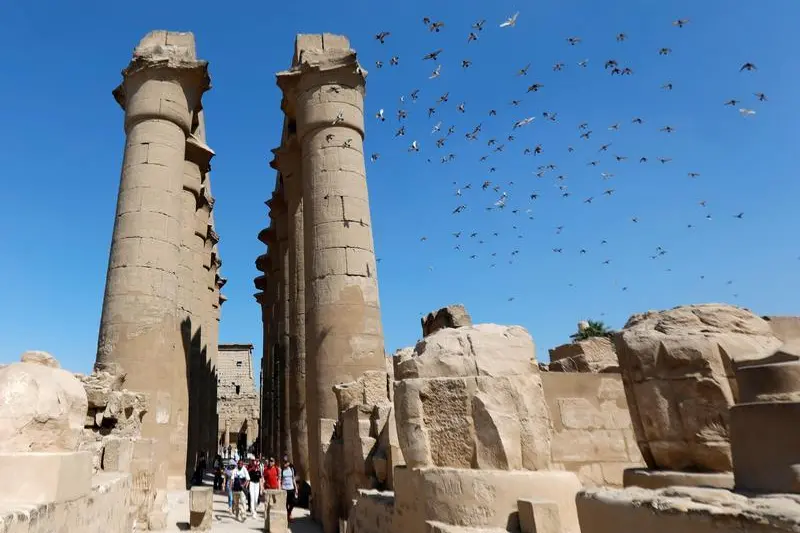PHOTO
Ahmed Youssef, chairman of the ETPB, told Arab News: “Revenues from tourism reached the highest point at $12.6 billion in 2019. Saudi Arabia ranked among the top countries for travel to Egypt before the pandemic. The Saudi market represents the first and most important Arab market, ranking fifth for visitors to Egypt. The trend continued into the first two months of 2020 that recorded 8 percent year-on-year growth in terms of numbers and revenues, with 2.4 million tourists visiting the country during this period.”
Tourism is a big revenue generator for Egypt, reaching $13 billion in 2019. About 3.5 million visitors traveled to the country last year, compared to 13.1 million in 2019. Although numbers are still below pre-pandemic levels, many establishments have resumed operations in a bid to kick-start the tourism sector, the chairman said.
Saudi Arabia is an important market for Egypt, which is why the ETPB is making significant investments in promotional activities.
“Now that the country has opened its borders for international travel, we plan to run promotions in partnerships with Saudi tour operators,” Youssef said. “In addition, we have incentive programs in place for the aviation industry, where airport landing and housing fees have been discounted by 50 percent. We also launched a digital campaign in the GCC, especially in Saudi Arabia, starting the last week of Ramadan (May 2021).”
“We are already seeing strong interest from travelers based in Saudi Arabia, especially Arab families. Our two countries share similar culture and values, which, in addition to the relative proximity, makes Egypt a highly attractive destination for Saudi tourists,” he said.
Wego, one of the biggest online travel marketplaces in the Middle East and North Africa (MENA) region, said in the run-up to the resumption of international travel on May 17 that Egypt topped the list of desired destinations.
Youssef said: “Our main goal now is not to measure the number of tourists but to reassure visitors that Egypt is a safe tourist destination. Saudi Arabia has now opened its borders for its nationals to travel again. We have also started receiving tourists from Saudi Arabia and we are hoping they will enjoy their time here.”
Egypt has adopted strict precautionary measures to limit the spread of COVID-19 while taking steps to support the economy, including the tourism sector.
The World Travel and Tourism Council (WTTC) granted Egypt its Safe Travels stamp, the ETPB chairman said.
“We have introduced the requirement for tourists to carry a negative COVID-19 PCR test certificate from their country issued up to 72 hours before the time of departure (96 hours for travelers arriving from Japan, China, Thailand, the US, Canada, South America, as well as London Heathrow, Paris and Frankfurt airports). Exceptions apply to travelers arriving by plane at the most frequented tourist destinations — Sharm El-Sheikh, Taba, Hurghada, and Marsa Alam — who can do a PCR test upon arrival at a cost of $30,” Youssef said.
The ETPB is targeting tourism revenue of $8 billion and aiming to attract 8 million overseas visitors in 2021. Demand is expected to stabilize and lead to a growth in reservation rates for the 2021-2022 winter season.
“We hope the numbers will return to pre-pandemic levels by fall 2022,” Youssef said.
Copyright: Arab News © 2021 All rights reserved. Provided by SyndiGate Media Inc. (Syndigate.info).





















